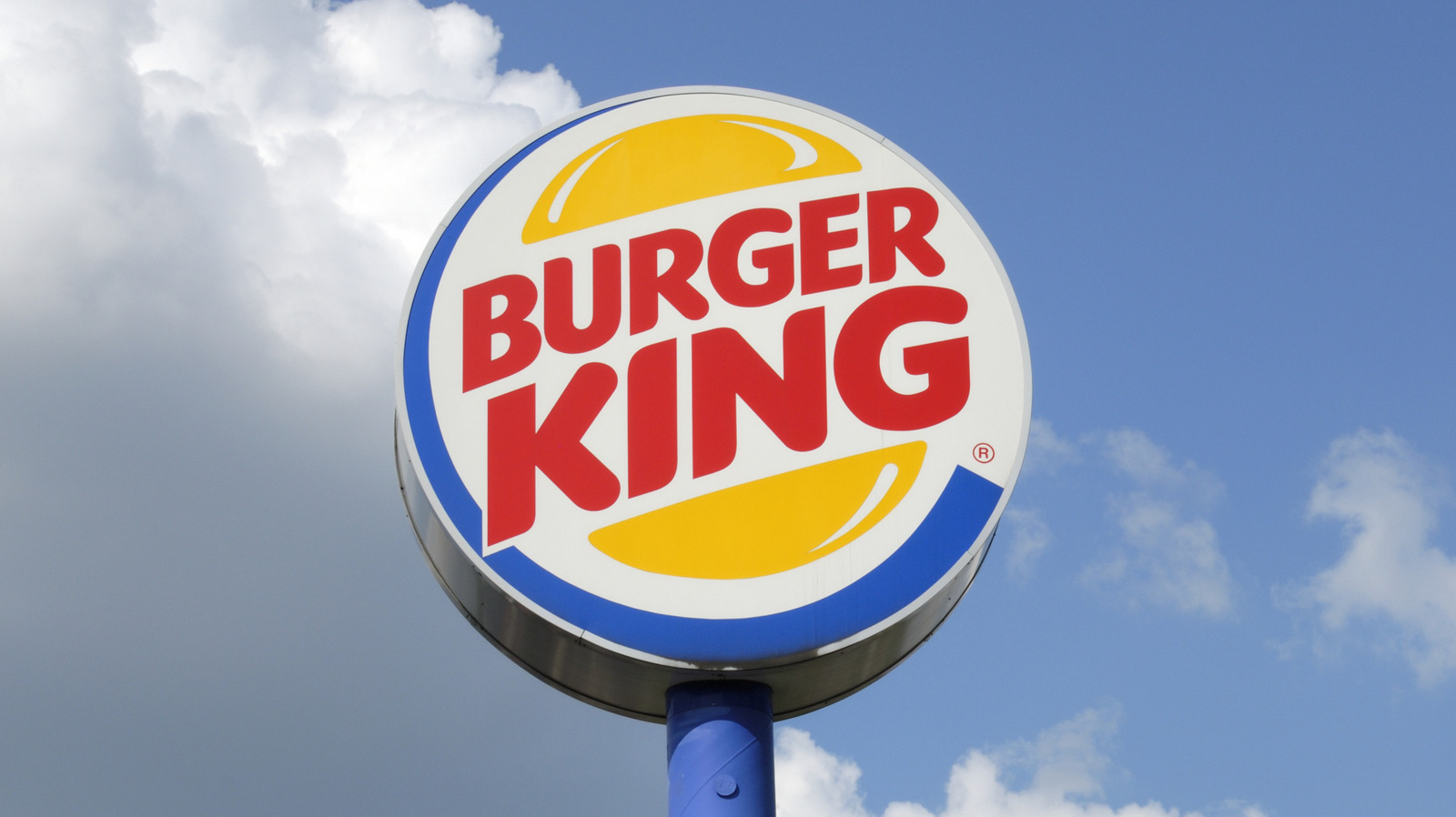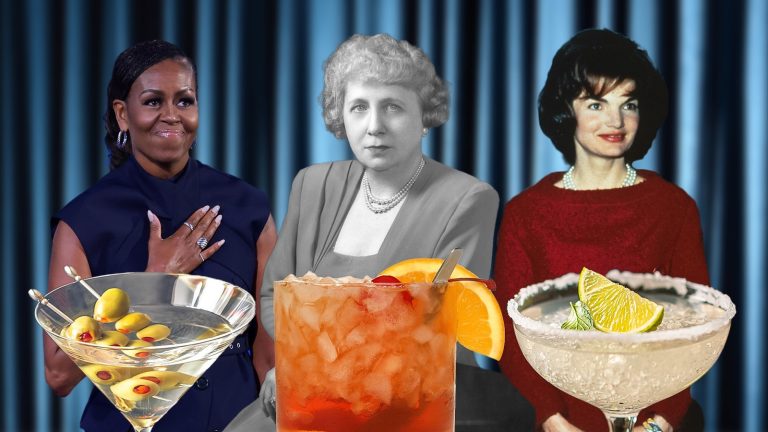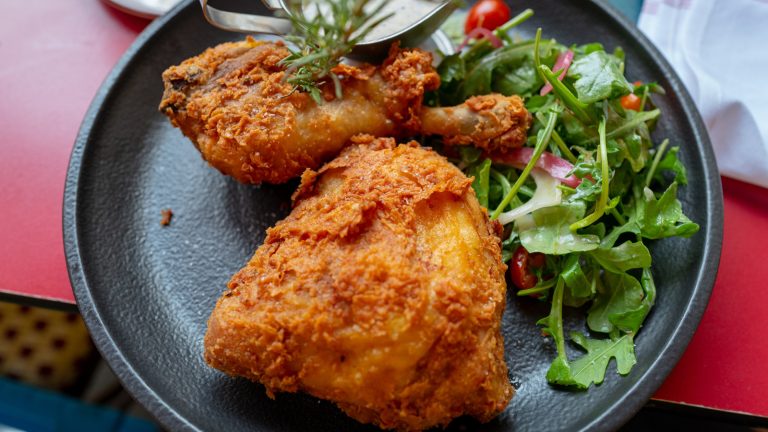A good burger is the foundation of many fast food menus. But no matter how many unique condiments or unexpected seasonings a restaurant might use to make their burgers shine, no sandwich can shield a chain from scrutiny. Burger King is one such company that’s no stranger to scandal. Heck, it even stirred up controversy when it first opened way back in the 1950s.
In the decades since, Burger King has regularly drawn unwanted attention for its numerous missteps. Whether it be big-time social media blunders or tone-deaf marketing stunts, Burger King has made just about every mistake in the book. There were a few instances where the chain recovered, but there are still some episodes that it simply cannot live down. Below are the 10 worst scandals in Burger King history. You’re sure to recognize them, and these controversies might even be the reason you stopped dining at the global fast food giant.
The infamous horse meat scandal
No Burger King scandal is as notorious as the horse meat incident. In 2013, Burger King acknowledged that some of its burgers in the UK were contaminated with horse meat after a few samples from Silvercrest, its Ireland-based meat supplier, were found to contain trace amounts of horse DNA.
The chain made clear that none of Silvercrest’s contaminated products were sold in Burger King stores, but that didn’t prevent the onslaught of consumer backlash. Both legacy news sites and disreputable sources alike latched on to the story, and both myths and truths behind the horse meat scandal began swirling online. As the story grew, so did the customer outrage. Though eating horse meat is acceptable in France and other parts of Europe, many social media users took to the internet to alert Burger King of their revulsion and intentions to boycott the fast food chain. Burger King responded by taking out ads in UK newspapers apologizing for the incident.
The sexist tweet on International Women’s Day
Burger King UK faced major customer outrage after tweeting “Women belong in the kitchen” on International Women’s Day in 2021. Though the chain’s subtweets went on to draw attention to the lack of professional female chefs in the industry and promote its new culinary scholarships, the marketing stunt completely backfired.
The fast food giant suffered immediate backlash as social media users called Burger King out on its use of a sexist trope as clickbait. What the chain’s marketing team might have thought to be a clever tweet ended up being tactless and insensitive, really rubbing its customers the wrong way. Burger King ended up deleting its initial post and following up with an apology, noting that replies to the thread had taken a turn for the worse, and that it didn’t want to give a platform to those who were using it as a space to spew more sexist rhetoric.
The lawsuit over the Whopper’s false advertising
Customers always want to get their money’s worth, and when it comes to a certain fast food burger, how much beef is in a Burger King Whopper really matters. A March 2023 class-action lawsuit claimed Burger King misled customers about the size of the Whopper, noting that the burgers served to customers were 35% smaller than those that appeared in the chain’s advertisements. And if the burgers had been accurately depicted in those advertisements, the plaintiffs in the case claimed that they wouldn’t have made the purchase in the first place.
The chain fought to have the case dismissed, but in August 2023, a Florida federal judge only wrote off some of the plaintiffs’ claims, ruling that television commercials or online advertisements didn’t make the same promises as in-store photographic depictions of the Whopper, and that Burger King would have to defend itself against these claims of false advertising.
The Real Meals mental health campaign criticism
Aligning with Mental Health Awareness Month, in May 2019 Burger King released a series of mood-themed “Real Meals.” The limited-time release in select locations around the United States was in partnership with Mental Health America, and the chain donated an undisclosed amount to the nonprofit following the joint mental health awareness campaign.
However, customers weren’t too keen on the partnership, and many social media users criticized Burger King’s marketing stunt, sensing that it wasn’t a genuine attempt at promoting mental health awareness. With the Real Meals carrying names like “Blue,” “Salty,” “DGAF,” “Yaaas,” and “Pissed,” critics pointed out that they didn’t actually correspond with any real mood disorder or mental health condition.
The chain also used the campaign to take a jab at its biggest competitor, alluding to the McDonald’s Happy Meal in a tweet promoting the Real Meals and noting that not consistently being happy if perfectly acceptable. Customers weren’t shy in letting Burger King know that they felt the campaign was making light of a serious topic.
The non-vegan Impossible Whopper controversy
After adding the Impossible Whopper to its menu in 2019, Burger King was embroiled in controversy surrounding the preparation of the plant-based burger. A lawsuit filed in Florida federal court claimed the chain tricked customers into believing the Impossible Whopper was vegan.
Phillip Williams, a strict vegan from Georgia, claimed he visited a Burger King in Atlanta and ordered an Impossible Whopper. Modifying his order to remove the mayonnaise, Williams thought the burger would then align with his diet. However, Impossible Whoppers are (unless otherwise requested) cooked on the same grills as Burger King’s meat products — a fact Williams claimed he was not privy to.
Burger King never explicitly advertised the Impossible Whopper as vegan, and the lawsuit was ultimately dismissed. Nonetheless, the non-meat burger made quite the stir in the plant-based community, and if you order it correctly — no mayo and not cooked on the grill — Burger King’s Impossible Whopper lands the restaurant on the list of fast food chains with the best vegan options.
The controversial Mary J. Blige commercial
In 2012, Burger King came under fire after a preview of an advertisement playing into a negative Black stereotype regarding fried chicken began making the rounds on the internet. The chain turned to A-listers like Salma Hayek, David Beckham, and Jay Leno to help launch some new menu items, but a clip with Mary J. Blige provoked outrage after Burger King had her singing about a crispy chicken wrap to the tune of her song “Don’t Mind.”
Blige addressed the controversy, apologizing to those she offended and letting her dedicated fans know that she never gave her stamp of approval on the commercial. The legendary singer said that the unfinished version of the advertisement circulating online didn’t reflect the creative vision for the project that she had agreed to. The fast food giant spoke up too, and Burger King apologized to Blige, alerting customers that the full commercial was still in the works.
The German TV investigation
Burger King came under intense scrutiny in 2022 after an undercover investigation from German TV show “Team Wallraff” revealed several of the chain’s locations across Germany were having a variety of troubling issues that are even worse than these 13 fast food red flags that should send you running.
Both interviews with former workers and undercover reporters posing as Burger King employees exposed mice infestations, unhygienic food preparation, passing off meat products as vegan, and moldy food being served to customers. One location outside of Berlin altered expiration dates on ingredients like cheese and bacon in order to continue serving it to customers, even after internal business guidelines mandated it be thrown away.
And as if things couldn’t get any worse, a store in the Saxon-Anhalt region had a maggot problem, with the worm-like creatures being found both in the garbage can and wriggling on the floor of the kitchen. These disturbing discoveries ultimately led Burger King to shut down the locations featured on the show.
The boycott threats over its Russia locations
Burger King is no stranger to boycott threats, and one of the most recent instances was in 2023 after the chain didn’t promptly withdraw its business from Russia after it invaded Ukraine. Customers criticized the fast food giant after it stalled on following through with its March 2022 promise to shut down Burger King locations in Russia after the country incited the war against its neighbor.
The chain claimed that a business partner holding the keys to roughly 800 Russian locations refused to close the stores. But both customers and analysts weren’t convinced that Burger King could simply wash its hands of the situation, noting that the company placing the blame on this mysterious business partner felt like a convenient camouflage in order to keep raking in profits. Social media backlash ensued, with Burger King being labeled as disgraceful and immoral.
As of 2025, Burger King still hasn’t fully pulled out of Russia. A statement on its website says the company demanded the franchisee of the Russian locations to cease operations, but the business partner hasn’t been cooperative.
The Big Mac copycat
In 2019, Burger King ruffled some feathers when it unveiled its take on the classic McDonald’s Big Mac. Just like the iconic McDonald’s sandwich, the limited edition Big King XL featured two burger patties, American cheese, pickles, onions, lettuce, and a special sauce all stuffed between a sesame bun. With nearly identical ingredient lists, the only visible difference between the two burgers is the third piece of bread McDonald’s features in its Big Mac. By forgoing the extra carbs, Burger King took the opportunity to amp up the beef by making its patties even bigger.
Burger King wasn’t shy about creating an almost exact replica of its competitor’s best-selling burger. The fast food chain doubled down on the copycat sandwich by accepting expired MacCoins (limited edition McDonald’s tokens that could be exchanged for a Big Mac) as payment for the Big King XL. A year after its limited release, Burger King went digging into the past for menu gold and brought the Big King XL back again in 2020. The sandwich made one more appearance in 2022, but you’ll have a tough time finding it on menus as of this publication.
The trademark defeats
You’d think a massive global chain like Burger King would have the basics, like its trademarks, locked down. But BK has ended up in court a few times over its name. One of Burger King’s earliest run-ins with the legal system came in 1968 when a Mattoon, Illinois couple took the chain to court. Gene and Betty Hoots opened their own restaurant, also called Burger King, back in 1957 — years before the fast food giant expanded into the Land of Lincoln. When the Hootses’ competitor started popping up, they filed a trademark lawsuit in court to stop the chain from growing its Illinois footprint. The court ultimately ruled that the then-national chain could not operate stores within 20 miles of Mattoon, and that the Hootses could continue with their own Burger King business, which still stands as of this publication.
A similar situation occurred in Pune, India. After Burger King began opening locations in the country in 2014, it learned of a local restaurant operating under the same name and filed an injunction in order to stop the small business from using it. The Pune court dismissed the suit, allowing the local restaurant, which had been open since 1992, to continue using the name Burger King.





